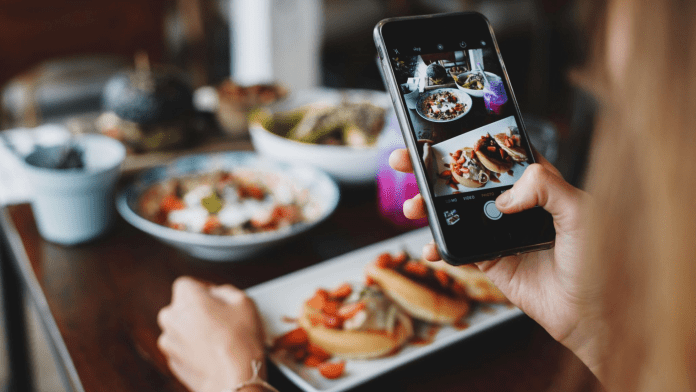In today’s digital age, where social media has become a powerful platform for brand promotion, influencer marketing has emerged as a key strategy for businesses, including those in the food industry. Influencer marketing leverages the reach and influence of social media personalities to promote products and services, allowing brands to connect with their target audience authentically and engagingly.
Influencer marketing has become a powerful tool for food brands to connect with their target audience, increase brand awareness, and drive online growth. This holds especially true for the food industry, where visual appeal and engaging content play a significant role in attracting customers.
In the digital age, influencer marketing has become a powerful tool for businesses to connect with their target audience and drive brand awareness. Influencers are individuals who have built a substantial following on social media platforms and can influence the opinions and purchasing decisions of their followers.
Here are some key reasons why influencer marketing is important in the digital age:
1. Trust and Authenticity: Influencers have built a loyal following based on trust and authenticity. Their followers perceive them as relatable and trustworthy individuals whose recommendations hold weight. When an influencer promotes a food brand, their audience is more likely to trust and engage with the brand, leading to increased credibility and customer loyalty.
2. Reach and Engagement: Influencers have a large and engaged audience, which allows brands to reach a wider pool of potential customers. By partnering with influencers, food brands can leverage their existing following and tap into new audiences that may be interested in their products. Influencers’ high engagement rates also ensure that brand messages receive significant visibility and generate conversations.
3. Targeted Marketing: Influencer marketing allows food brands to target specific niche audiences that align with their target market. Influencers often specialize in a particular niche, such as vegan food, healthy eating, or gourmet cuisine. By collaborating with influencers in these niches, food brands can reach the right audience segment with relevant and tailored messaging, resulting in higher conversion rates.
4. Content Creation: Influencers are skilled content creators who produce high-quality and visually appealing content. By partnering with influencers, food brands can leverage their creativity to develop engaging and impactful content that showcases their products authentically and compellingly. This content can then be shared across social media platforms, websites, and other digital channels to enhance brand visibility and generate user-generated content.
5. Social Proof and Recommendations: In the digital age, social proof plays a crucial role in consumer decision-making. When influencers endorse a food brand, their followers perceive it as a genuine recommendation, leading to increased interest and consideration. Influencer marketing allows food brands to tap into the power of social proof and leverage the influence of trusted individuals to drive conversions and sales.
6. Measurable Results: Influencer marketing campaigns can be tracked and measured, providing valuable insights into campaign performance and return on investment. Brands can assess key metrics such as reach, engagement, website traffic, and conversions to evaluate the effectiveness of their influencer partnerships. This data-driven approach enables food brands to optimize their strategies, make informed decisions, and allocate resources effectively.
Through Influencer Marketing, food brands can enhance their online presence, connect with their target audience on a deeper level, and ultimately drive growth and success in the digital landscape.
Strategizing Influencer Marketing for Your Food Brand’s Online Growth
Here we will explore the concept of influencer marketing and discuss effective strategies for food brands to leverage this marketing technique to drive online growth.
To harness the full potential of influencer marketing, it is essential to develop a well-thought-out strategy. Here are the key steps to consider:
1. Define Your Objectives: Start by identifying your marketing goals. Are you aiming to increase brand awareness, drive online sales, launch new products, or engage with a specific target audience? Clarifying your objectives will help shape your influencer marketing strategy.
2. Identify the Right Influencers: Conduct thorough research to identify influencers who align with your brand values, target audience, and content style. Look for influencers who have an authentic voice, a genuine passion for food, and an engaged following. Quality over quantity is key in selecting the right influencers.
3. Craft Authentic Campaigns: Collaborate with influencers to create authentic and engaging content that resonates with their audience. Encourage them to showcase your products in creative ways, share unique recipes, or provide honest reviews. By incorporating storytelling, visuals, and personal experiences, you can create a compelling narrative that captivates and connects with the audience.
4. Build Genuine Relationships: Building strong relationships with influencers is essential for long-term success. Approach influencers with personalized outreach, expressing your interest in collaborating with them. Offer value in the form of product samples, exclusive experiences, or special promotions. Nurturing these relationships can lead to ongoing brand advocacy and increased brand loyalty.
5. Measure and Optimize: Track the performance of your influencer campaigns by monitoring key metrics such as reach, engagement, conversions, and sentiment. Utilize analytics tools and insights to evaluate the effectiveness of your campaigns and make data-driven optimizations to maximize results. Regularly assess and refine your strategies based on the feedback and performance metrics gathered.
Influencer marketing offers an incredible opportunity for food brands to connect with their target audience, build brand awareness, and drive online growth. By leveraging the influence and reach of trusted individuals, food brands can tap into the authenticity and engagement of influencers to drive brand awareness, credibility, and customer loyalty.





